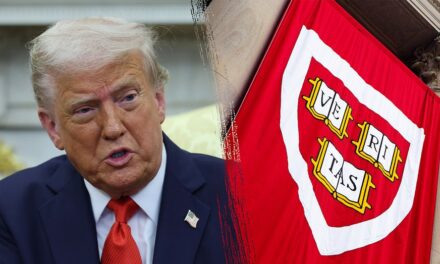A ski resort in Wisconsin is facing a lawsuit after an employee claims he was fired for sharing Bible verses on social media. This incident has sparked discussions about religious freedom and workplace rights in the United States.
The employee, who had been with the resort for several years, alleges that his termination was a direct result of his decision to post scriptures on platforms such as Facebook and Instagram. The lawsuit contends that the ski resort violated the employee’s rights to free speech and religious expression.
According to court documents filed in a state circuit court, the ex-employee asserts that sharing his faith online was not only a personal choice but also aligned with his values as a Christian. This case raises questions about the boundaries of workplace policies, particularly concerning social media conduct and religious beliefs.
Reportedly, the employee’s postings included daily Bible verses and reflections on faith, which he felt were beneficial not just to him but could also inspire others. However, management at the ski resort purportedly cited concerns over the potential for those posts to create a divisive environment among workers or to alienate customers.
The employee, identified in the lawsuit as John Doe, contends that he received repeated warnings from his supervisors regarding the content of his social media activity. He claims that he was instructed to keep his personal beliefs off social media, warning him that failure to do so could lead to disciplinary action.
In October 2023, after a series of what he describes as retaliatory actions by management, including decreased hours and scrutiny of his work, he was ultimately let go. The lawsuit claims that his dismissal is in violation of federal and state laws that protect employees from discrimination based on religion.
This case is particularly significant in the context of ongoing debates surrounding workplace rights, especially as they pertain to religious expression. The Equal Employment Opportunity Commission (EEOC) has set forth regulations that safeguard employees from persecution based on their religious beliefs, but the application of these protections in the realm of social media is still evolving.
Legal experts weigh in on this development, emphasizing that the First Amendment provides individuals the right to express their beliefs, but the situation becomes complex within the framework of employment. The issue often hinges on whether the employee’s actions disrupt workplace harmony or infringe on the rights of others.
This lawsuit has potential implications not only for the employee and the ski resort but also for other businesses that grapple with setting and enforcing social media policies. As employers strive to maintain a harmonious work environment, they must also consider how their policies align with legal protections for religious expression.
The ski park’s management has issued a statement denying the allegations, asserting that the decision to terminate the employee was based on performance issues unrelated to his social media posts. They maintain that they support the right to freedom of speech and religion, but emphasize the importance of maintaining a harmonious work environment free from divisive content.
Supporters of the employee argue that the lawsuit is a critical test case for the rights of individuals to express their religious beliefs in an era where social media has become a primary form of communication. Advocates for religious freedom are keeping a close eye on this situation, asserting that the outcome may shape future cases regarding religious expression in the workplace.
Furthermore, the case has garnered attention on various platforms, igniting conversations among both religious and secular communities on the right balance between workplace decorum and individual expression. Many religious organizations have rallied behind the employee, viewing the lawsuit as an opportunity to advocate for broader protections for individuals expressing their faith in their personal lives, including online spaces.
In the wake of this incident, a number of legal scholars have begun exploring the implications of social media policies on religious expression, noting that workplaces must tread carefully when navigating the intersection of personal beliefs and professional guidelines. The lawsuit illustrates how the digital age complicates traditional norms surrounding privacy and professional conduct, as employees increasingly blend their work and personal lives online.
As the legal proceedings progress, the Wisconsin ski resort’s decisions and management practices may be scrutinized closely. The outcome could serve as a precedent for how courts define the limits of religious expression within private corporations and work-related social media policies.
The public’s reaction to this incident has also been varied. Some viewers express concern for the rights of employees to maintain their religious identities at work without fear of backlash, while others emphasize the responsibilities management has to create an inclusive atmosphere that accommodates all individuals, regardless of differing beliefs.
Fundamentally, this case reflects a broader societal issue where individuals navigate their identities in ever-evolving spaces, including highly public online platforms. As the lawsuit unfolds, many will be watching not just for the legal ramifications but also for the message it sends about the current state of religious tolerance in American work culture.
With significant implications for both employers and employees, this case has surfaced amidst a growing dialogue about how companies should adapt to the realities of a workforce that is increasingly vocal about their personal beliefs and rights online. Observers anticipate that the lawsuit may push for clearer guidelines and a reevaluation of existing policies regarding social media usage, especially as they pertain to individual faith and expression.
In conclusion, the case involving the Wisconsin ski resort serves as a reminder of the complexities that lie at the intersection of faith and employment. As courts continue to interpret the evolving landscape of religious expression in the workplace, the outcome of this lawsuit may very well impact how businesses handle these issues across the country, potentially prompting new discussions on employee rights and freedoms in a digital age.
As the two sides prepare for a legal battle, one thing is clear: the conversation surrounding religious expression at work is just beginning, and its implications are set to resonate far beyond the confines of this single case.
































